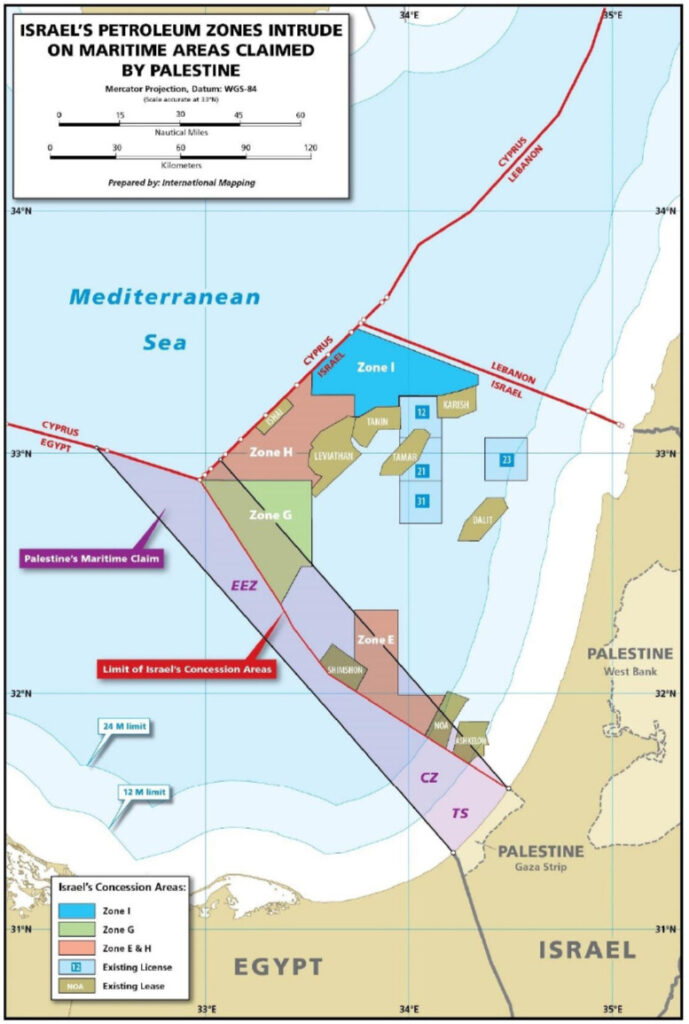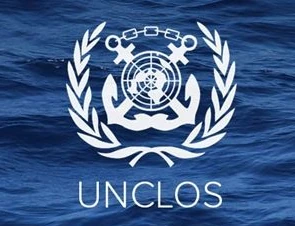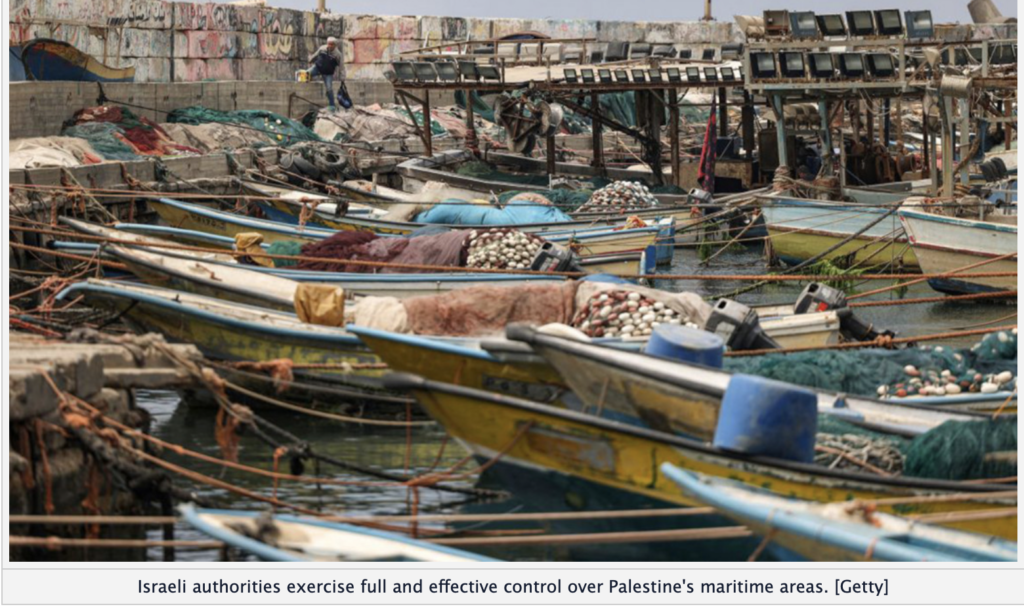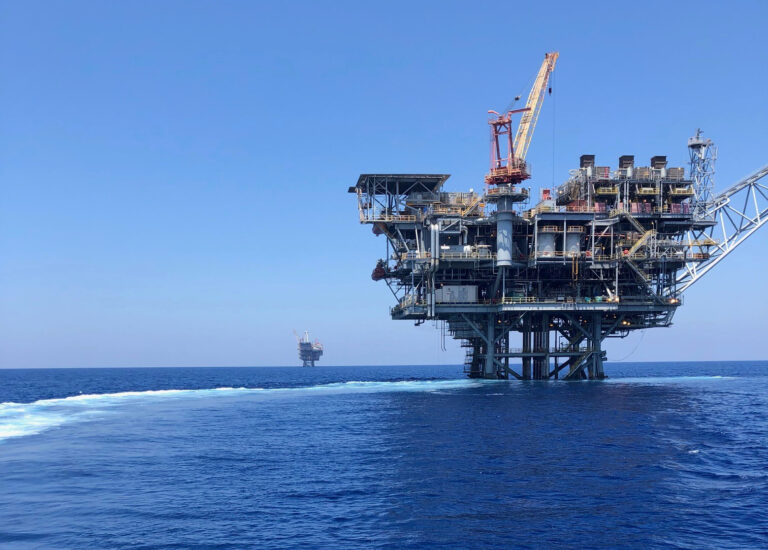By Andrea Tucci,
During the ongoing war in Gaza, the Israeli government has granted 12 gas exploration licenses off the coast of Gaza to six companies, including British BP, Italian Eni, Dana Petroleum, and Israeli Ratio Petroleum. The Israeli Ministry of Energy announced these new natural gas concessions in areas that, according to international law, fall within Palestinian maritime boundaries.
The concession areas include Zone G, adjacent to the Gaza coast, of which 62% lies within Palestinian maritime boundaries, and Zones H and E, of which 73% and 5% respectively are located within the maritime boundaries claimed by Palestine.

The granting of these licenses demonstrates Israel’s disregard for international law, as it cannot legally issue licenses in areas where it has no sovereign rights. International law prohibits, for commercial purposes. the exploitation of natural resources in occupied territories.
Palestine declared its maritime boundaries when it joined the United Nations Convention on the Law of the Sea (UNCLOS) in 2015, providing geographic coordinates and figures of the area in 2019.

However, Israel is not a party to UNCLOS and does not recognize the State of Palestine, which provides a pretext for not recognizing Palestinian maritime boundaries and ignoring international norms.
Israeli authorities exercise complete and effective control over Palestinian maritime areas, denying Gaza access to resources in its own waters, despite the Oslo Accords guaranteeing Palestinians the right to access an area 20 nautical miles from the Gaza coast.
It is importance to highlight that since 1947 Israel has not only occupied 85% of Palestine since 1947 but also 80% of the sea.

The new gas exploration licenses have been contested by several Palestinian human rights groups, who have sent letters to the Israeli Minister of Energy and the Attorney General requesting the cancellation of these tenders, deemed a violation of international law, in accordance with the rules of the article 55 of the Hague Regulations.For decades, Israel has adopted a unilateral approach to appropriating natural resources in the occupied Palestinian territories. The recent offshore concessions are seen as another attempt to illegally seize Palestinian resources.
Israel’s energy ambitions, highlighted by its intention to become an energy hub exporting gas to Europe, have been hampered by the ongoing war in Gaza. Energy analysts emphasize that the sovereignty situation of the Gaza Strip is ambiguous enough that international energy companies should be cautious about working with Israel near an active war zone.
Israel made a maritime jurisdiction delimitation agreement with the Greek Administration of Southern Cyprus in 2010 and that the area that should fall to Palestine under international law was not included in this agreement. Palestine is defenseless and weak in preventing such activities in its declared jurisdiction areas, Contrary at the same time Türkiye, which has the military capability and power to prevent any unlawful drilling and licensing in the Eastern Mediterranean, within its maritime boundaries.
The gas exploration licenses off the coast of Gaza are part of a broader strategic plan by Israel to consolidate its role as an energy supplier, but they raise significant legal and sovereignty issues that further complicate the already delicate geopolitical dynamics of the region.




